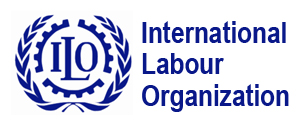
08 September 2021 (Port of Spain) – Many Caribbean workers have been negatively affected by the COVID-19 pandemic, and in many jurisdictions, trade unions have been challenged to represent and protect their members amidst changing public health regulations and restrictions, emerging OSH requirements and evolving work arrangements.
In 2020, the International Labour Organization (ILO) conducted assessments of the Impact of Hurricane Maria/ serious climate disasters and Covid-19 on Trade Unions and members in Dominica and Saint Lucia . Among the common issues unearthed were technological and communication challenges and other institutional capacity needs which hampered the social partners’ effective participation and representation in the wider national Covid-19 response and future resilience planning processes.
To enhance their capacity to process and support these rapidly growing demands, the ILO through its Caribbean Resilience Project has announced landmark funding for workers’ organizations in Dominica, Guyana and Saint Lucia.
Approximately $160,000 USD has been awarded through individual grants to eight trade unions in Dominica, Guyana and Saint Lucia to support technology equipment upgrades, digital skills training and integrated (traditional and social media) communication campaigns, as they seek to adapt to the demands of a changing and difficult environment.
“Accelerated digital transformation and strengthened organizational capacities are vital pre-requisites for trade unions to be able to meet their responsibilities and effectively carry out their mandates on behalf of members during and after the crisis. Caribbean trade unions cannot be left behind,” explained Vera Guseva, ILO Caribbean Specialist for Workers’ Activities. “This funding will ensure that they have the tools and systems to respond faster to a higher volume of requests for information or advice; to participate in negotiations and to advocate on complicated issues such as redundancies, layoffs, occupational safety and health, and remote working.”
“In a time when the threat to lives and livelihoods calls for a coherent and cohesive response from social partners, the critical role and responsibilities of trade unions in preparing for and responding to situations of crises, as outlined in ILO Recommendation 205 on Decent Work for Peace and Resilience, cannot be ignored. External change also demands internal change and new strategic approaches if Unions are to have impact in the fight for social justice in these times,” commented ILO Resilience Project Coordinator, Resel Melville.
The support will empower the trade union movement in the three countries to raise their profiles; stay on top of membership issues; as well as enhance how they manage and organize information. It will also enable them to securely maintain data on their members and services; respond more effectively and efficiently to members informational and other needs; save costs and operate more economically so that leadership and affiliates who have staff can work remotely.
In Guyana, the Guyana Agricultural and General Workers Union (GAWU) as the implementing agent for the Federation of Independent Trade Unions of Guyana (FITUG) will focus use of the grant on ICT tools and related capacity building, but also to expand the reach and scope of its information campaign to heighten workers’ awareness of key issues relating to fundamental rights at work, just transition, social dialogue and decent work for peace and resilience. The campaign will be concentrated along the Demerara and Berbice coastal areas of where most workers reside and where the union has existing operations and resources.
The Guyana Trade Union Congress (GTUC) will start by conducting the diagnostic of needs for its use of information and communications technology (ICT), then procure the necessary equipment and software to develop and conduct a training programme for trade union leaders and officers. During the course, staff will develop knowledge and skills to effectively use digital tools, communications channels and other innovative solutions identified as fundamental to the work of the organization.
In Saint Lucia, the Saint Lucia Trade Union Federation (SLTUF) has committed to actions that improve its ability to respond on behalf of frontline and essential workers who may face increased risks and vulnerabilities to the virus. The organization’s affiliates include the Saint Lucia Civil Service Association; Saint Lucia Correctional Welfare Association; Saint Lucia Fire Welfare Association; Saint Lucia Medical and Dental Association; Saint Lucia Nurses Association; Saint Lucia Teachers Union; Vieux Fort and Docks Workers Union; and Saint Lucia Seamen and Waterfront Workers Union.
In Dominica, the DPSU received funding for a range of products and services under its Support for Institutional Strengthening, Digital Transformation and Union Education Campaign Project. The Dominica Amalgamated Workers Union (DAWU), Waterfront and Allied Workers Union (WAWU), Dominica Trade Union (DTU) and National Workers Union (NWU) whose operations were effected by Hurricane Maria and Covid-19 will use the funds received to upgrade their hard and software and thus to enhance their communication with the members.
“The DAWU, on behalf of the trade unions in Dominica would like to take the opportunity to thank the ILO Decent Work Team and Office for the Caribbean and the Director Mr Dennis Zulu and is deeply appreciative of the opportunity given to us, and assure you that we will certainly use the grant funds for the purpose for which it is intended as we equip the offices, with the procurement of the ICT and training needs,” said Leah Shillingford, General Secretary, Ag. of the Dominica Amalgamated Workers Union.
The ILO Caribbean Resilience Project is a targeted programme of assistance that aims to strengthen the capacity of Guyana, Saint Lucia and Dominica to become more resilient (in line with ILO Recommendation 205 on Employment and Decent Work for Peace and Resilience ) to climate disasters and other crises. The Project which commenced in 2019 and seeks to ensure that the principles embedded in the ILO “Guidelines for a just transition towards environmentally sustainable economies and societies for all ” are fully adopted and implemented by the three target countries.






